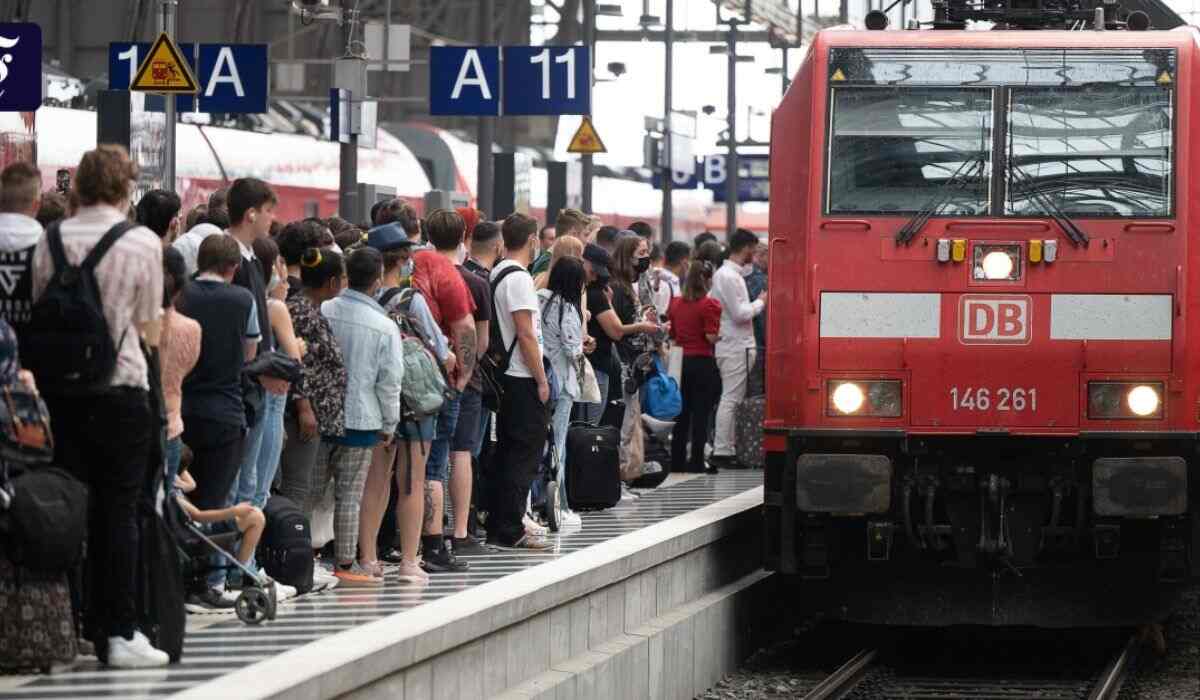Europe budget travel tips can be incredibly helpful when planning a trip to Europe while on a tight budget. With so many world-class cities and destinations spread across multiple countries, it’s easy to assume that experiencing the best of Europe requires deep pockets.
The concept of “budget Europe travel” is certainly attainable with the right knowledge and strategic approach. From targeting affordable cities to utilizing public transportation and accommodations like hostels, a well-researched budget itinerary can help you explore Europe’s rich culture and history without breaking the bank.
Planning an Affordable European Getaway is Possible
Traveling through Europe seems like a far-off dream for many due to the high costs of visiting the continent. You can assemble an incredible low-budget trip to Europe with some strategic planning and frugal touring techniques. This article will share 21 budget travel tips to help guide your planning of an affordable European vacation.
By focusing on more inexpensive countries, traveling during the shoulder season, opting for hostels and homestays, using local transportation, finding free activities, grocery shopping, traveling light, and more, you absolutely can visit multiple destinations across Europe without breaking the bank. Let’s dive into the specifics of how to make the most of your money during a memorable European getaway.
Consider Lower-Cost European Nations
When researching locations for your European journey, look into countries with a lower cost of living which will inherently reduce the price of your accommodations, food, and transportation. Nations like Portugal, Croatia, Hungary, and Poland offer amazing destinations at more affordable prices.
For example, the average hostel bed in Lisbon, Portugal runs about 20 Euros per night, while similar lodging in London or Paris often costs twice that amount. Targeting value destinations can significantly cut down your travel expenses.
Travel During Europe’s Off-Season
One of the best ways to cut costs is to visit Europe in the spring (April-June) or fall (September-October) months, which are considered the continent’s “shoulder seasons”. During these times, accommodation prices decrease by 25-50% compared to the busy summer travel period.
You’ll also experience smaller crowds and mild weather in many regions. While some attractions or tours may offer reduced hours, you gain much more financial flexibility by avoiding peak tourism times. The earlier spring or later fall dates still provide decent weather for outdoor activities as well.
Opt for Budget-Friendly Accommodations
Hostel living is one of the most popular and economical ways to experience European cities and allows you to meet other travelers. The average hostel bed in a major metro area costs between 15-30 Euros, often in dorm-style rooms.
Shared facilities and communal environments keep the price down significantly versus hotels. Another free option is utilizing Couchsurfing, which connects travelers with locals who provide free accommodations in exchange for cultural exchange. You can also search homestays and rentals on Airbnb for rooms in private homes at low rates.
Consider Budget Hotels or Apartment Rentals
If hostels or Couchsurfing aren’t your style, search budget hotel chains like Ibis, Premier Inn, or easyHotel which can be found across Europe starting at around 50 Euros for a private room.
You may also find great apartment rentals on Airbnb, especially in high season when more properties become available, at prices competitive with hostels. Focus your search on apartments outside city centers to save even more.
Take Advantage of Affordable Local Transportation
Using ground transportation like trains, buses and flights within Europe is very affordable when booked in advance. For instance, you can travel between major cities like Rome to Barcelona by plane for 30-50 Euros one-way if reserved 2-3 months ahead.
Train travel throughout Europe is also quite reasonable with discounts available for booking in advance or for youth, students, and seniors. Consider rail passes such as the Eurail global pass if visiting multiple countries. Another budget option is rideshare services like BlaBlaCar, which allows travelers to share vehicle rides for a small fee split between passengers.
City public transportation networks also provide an easy way to get around each destination without spending a lot. Be sure to look into transportation discount cards for sustained savings.
Save Money on Sightseeing
Rather than visiting each attraction individually, look for city passes covering admission to multiple museums and tours. For instance, the Rome Pass grants access to the Colosseum, Roman Forum, and Vatican museums for less than visiting each separately. Always confirm what’s included before purchasing though.
Many European museums and attractions have free admission days once or twice monthly so search online schedules accordingly. You can also budget your time to enjoy free cultural activities like visiting public parks and gardens, strolling historic neighborhoods, or attending concerts in the squares.
Eat Affordably in Europe
Picnicking from the local grocery store is a budget-smart way to dine while traveling. While many major supermarkets can be found across Europe, searching smaller neighborhood markets allows you to stock up on fresh deli meats, bread, cheeses, and fresh seasonal fruits to assemble filling picnics.
European cafes also offer cheaper and quicker lunch options than restaurants through sandwiches, salads, and light meals often priced between 5-10 Euros. Be sure to utilize your accommodation’s amenities as well which sometimes include breakfast or limited daily meals in hostels and homestays.
Here are some additional tips for affordable dining:
- Search apps like TheFork to find good restaurants with discount deals
- Visit student restaurants catering to university crowds for great value meals
- Consider no-frills fast-casual chains like Pret a Manger or Au Bon Pain
- Picnic in parks or while sightseeing to avoid high tourist area prices
Travel Light to Avoid Checked Bag Fees
When flying between destinations within Europe, most budget airlines and low-cost carriers charge fees for checked luggage that can add up. Stick to carry-on luggage only using a small backpack or rolling bag by minimizing what you bring.
Focus on layering clothing and packing lightly folded items to maximize your space. Another option is utilizing self-service laundries or laundromats in your city stops to refresh clothes periodically instead of overpacking. This eliminates baggage charges on multiple flights during your trip.
Explore Like a Local
To save meaningful money as a tourist, research your destination to discover insider tips only locals know. Download apps to follow along with free walking audio tours showcasing hidden gems off the beaten path. You’ll avoid entrance fees and commercialization this way.
Get lunch specials by patronizing neighborhood cafes, browse family-run food markets rather than touristy grocery stores, and be vigilant hunting for festivals and events with free admission, performances, and entertainment. Shopping around areas outside the main tourist zones presents great savings opportunities and cultural authenticity.
Leverage Travel Apps Strategically
Digital tools help organize low-budget travel but be mindful of fees. While Airbnb, Hostel world, and accommodation booking sites offer deals, use direct hotel/hostel websites too for the best rates.
Transport planning apps like Rome2Rio or city metro/bus planners enable inexpensive transit access without surcharges. Only use rideshare and taxi-hailing services as a last resort after comparing costs to public options. Opt for self-guided exploration over inefficient paid tours when possible as well as using mapping and audio guides.
| Transportation Comparison | Price (Roundtrip) |
| Intercity Train | 30-60 Euros |
| Low-Cost Airline | 30-100 Euros |
| Long-Distance Bus | 15-30 Euros |
| Uber/Cab | 50-150 Euros |
As the table above displays, train and bus services often rival or even beat flights for short-haul trips when booked in advance thanks to extensive European rail infrastructure. Only use taxis, Uber, and shuttles selectively versus walking or public transportation.
Consider Independent Travel
While guided packages offer convenience, independent travel fosters DIY learning and significant savings potential. By handling your flight, accommodations, local transportation, and itinerary, you gain the flexibility to linger longer where desired or modify plans on the fly.
Group tours cannot also truly feel immersed as locals do. With some advanced preparation for researching destinations online, independent travel proves very manageable across Europe and leaves more money in your travel wallet.
Create and Stick to a Budget
The foundation of any affordable trip requires planning realistic expenses based on must-see priorities. Take into account accommodations, meals, transport, attractions, and minor costs, then pad the total with a 10-20% buffer for unexpected expenses.
Track daily cash withdrawals and spending through an Excel sheet or budget app to stay on track. Factor in a couple of splurges but be rigid eliminating non-essentials to maximize your travel budget’s potential.
Shop Around for Airline Deals
Flight ticket prices fluctuate widely depending on the day of the week booked or the number of months in advance, so thoroughly research historic pricing trends. Use Google Flights or Skyscanner to monitor fares across numerous airlines and dates rather than booking ASAP.
Low-cost carriers like Ryanair, Wizz Air, or EasyJet often offer the best domestic European routes for 30-100 Euros one-way if reserved early enough. Be prepared for minimal carry-on limits which increases the need for smart packing light.
Stay Savvy at Accommodations
Whether lodging at hostels, hotels, or apartment rentals, look for special deals by joining loyalty programs. Ask about discounts for extended stays, package rates for facilities like airport shuttles, or discounts for dorm versus private rooms at hostels.
Many chains and rental companies offer subscriber promotions through newsletters too. Be polite and aim for upgrades like room views whenever possible without paying more.
Take Advantage of Free Activities
One of the best parts of European exploration involves experiencing complimentary entertainment opportunities.
Wander through verdant parks and gardens, immerse in street performances, spectate public sports matches or festivals, listen to live music in squares, browse outdoor markets, stroll historic centers and waterfront promenades for hours without spending a dime. Always confirm openings and schedules but savor complimentary activities that highlight each destination’s unique flair.
Final Tips for Budget Europe Travel:
- Consider a Eurail pass for unlimited rail travel in selected countries
- Visit less prominent cities and towns versus capitals for lower prices
- Research money-saving youth hostel cards or country tourist passes
- Capitalize on local friends’ insider knowledge of budget activities
- Chat up with fellow hostel travelers to split the costs of shared experiences
- Use only the local currency for true savings avoiding dynamic conversion fees
With extensive preparation, flexibility, and these budget travel tips, you absolutely can enjoy multiple destinations throughout Europe affordably. Maintain an open and adventurous attitude – memorable experiences often prove cheaper than expected.
Frequently Asked Questions
Is independent travel cheaper than an organized tour?
In most cases, yes! By booking your flights, accommodations, and transportation, you avoid group tour markups and fees. It takes more front-end research but provides valuable flexibility to save money where possible.
How do I save on food costs in Europe?
Picnicking from grocery stores, and cafes for lunch specials, and utilizing included breakfasts at lodging can cut food bills significantly. Apps like TheFork also provide restaurant deals. Sample student menus and fast-casual chains too.
What’s the best way to get around cities affordably?
A: Most cities have excellent public transportation networks like metros, buses, and trams that allow unlimited travel for just a few euros per day. Maps and mobile transit apps make navigation simple without shelling out for taxis.
Can I cheaply visit multiple countries?
Absolutely! Using budget airlines, buses or trains lets you hop between nearby nations easily. Rail passes unlock amazing value when exploring a wide region over a few weeks too. Planning is key.
What if something goes wrong with my budget?
No need to stress – pad your original estimates with a 20% buffer for unexpected costs. Credit cards provide security. And in a pinch, hostels/internet access means easy access to assistance if needed from travel experts online.
Conclusion
Planning and executing an affordable trip to Europe is absolutely possible with the right strategies in place. Prioritizing inexpensive destinations, off-season travel, hostels and budget accommodations, groceries over restaurants, public transit over taxis and taking full advantage of free entertainment can go a long way.
Booking independently fosters flexibility whereas advance homework ensures smooth experiences. While unexpected costs may arise, sticking to a padded budget equips travellers well. Above all, keeping an open mindset to each challenge allows travellers to maximize memorable travel experiences across Europe without breaking the bank.















